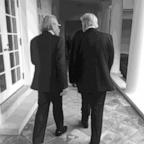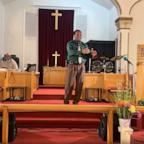With ex-Google exec, AOL seeks another fresh start
NEW YORK -- Shortly before taking over as head of AOL in April, Tim Armstrong ripped out some office doors.
The doors— made of glass and requiring a company key card to pass through — stood in AOL's New York headquarters, separating the offices of executives like former CEO Randy Falco and his No. 2, Ron Grant, from the rank and file.
The doors' departure is emblematic of a shift underway at AOL. Armstrong, 38, was recently hired away from Google and asked to give the long-suffering Internet unit of Time Warner Inc. yet another shot at salvaging its future after what seems like a lost decade.
If nothing else, Armstrong's arrival has thrilled employees who were unhappy under his predecessors, who were widely considered out of touch and out of place.
But Armstrong's more approachable style won't be enough to restore AOL's luster. AOL's legacy business, its dial-up Internet service, continues to dwindle while its newer online advertising service is not yet picking up all the slack. AOL's operations still make money, but that profit has been falling.
Armstrong's ability to find the right formula could be especially put to the test if Time Warner formally separates itself from AOL by spinning the Internet division off into a standalone business, as the company is exploring. That move would finally undo the $147 billion deal in which AOL bought Time Warner in 2001, which became one of the worst corporate combinations in history.
AOL would not make Armstrong available for comment. But current and former employees said his open management style, which he tried to show by taking out the doors, already has marked a stark change from Falco and Grant, who had snippy nicknames at AOL like "Rondy," a combination of their first names.
Falco and Grant joined AOL in late 2006 as part of a surprising management change by Time Warner that ousted AOL's then-CEO, Jonathan Miller. Falco had been president and chief operating officer at NBC Universal Television Group, while Grant came from Time Warner, where he was senior vice president of operations.



